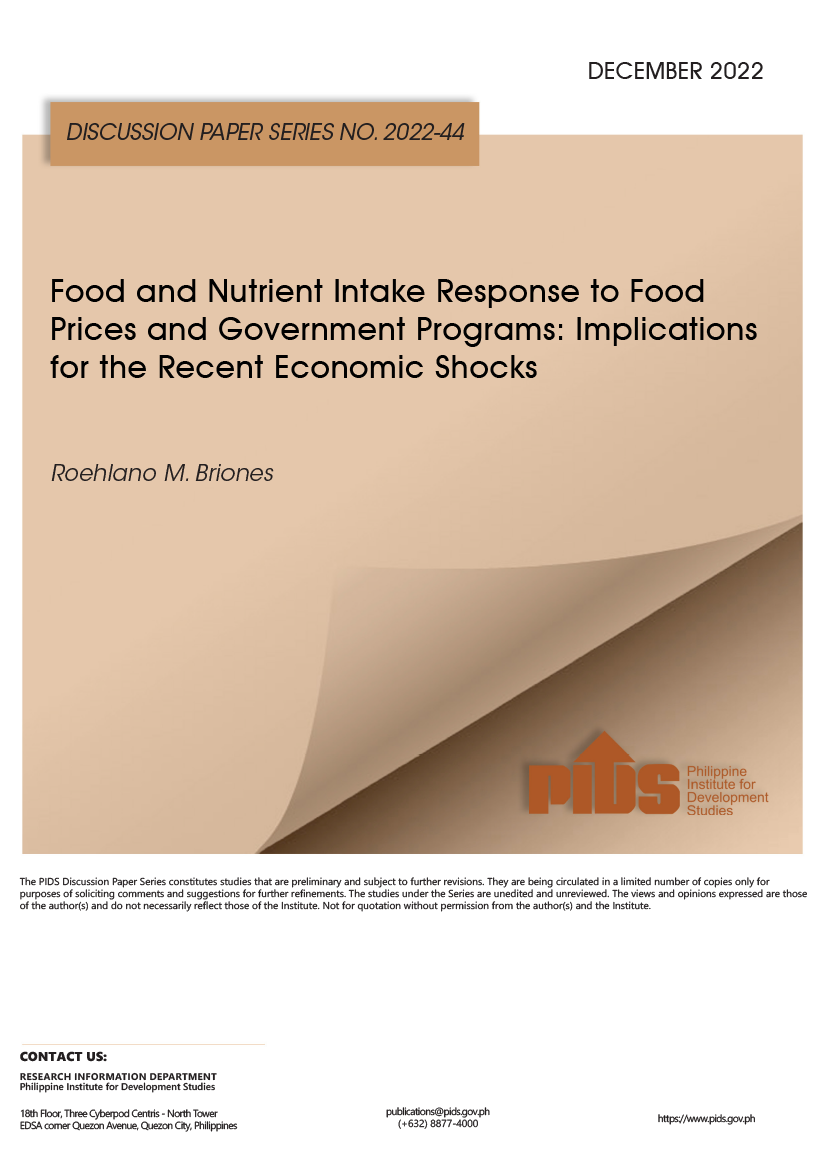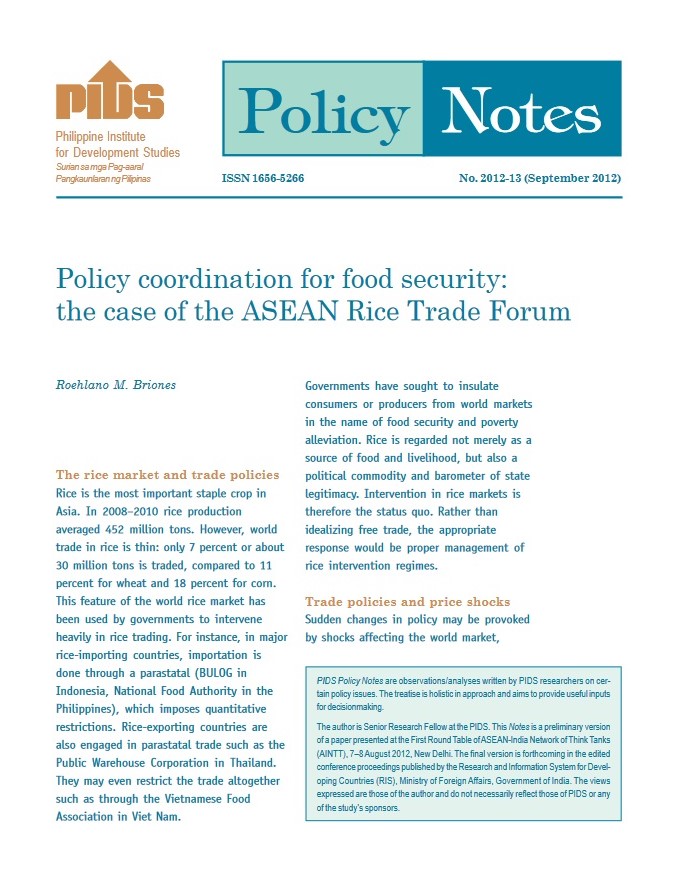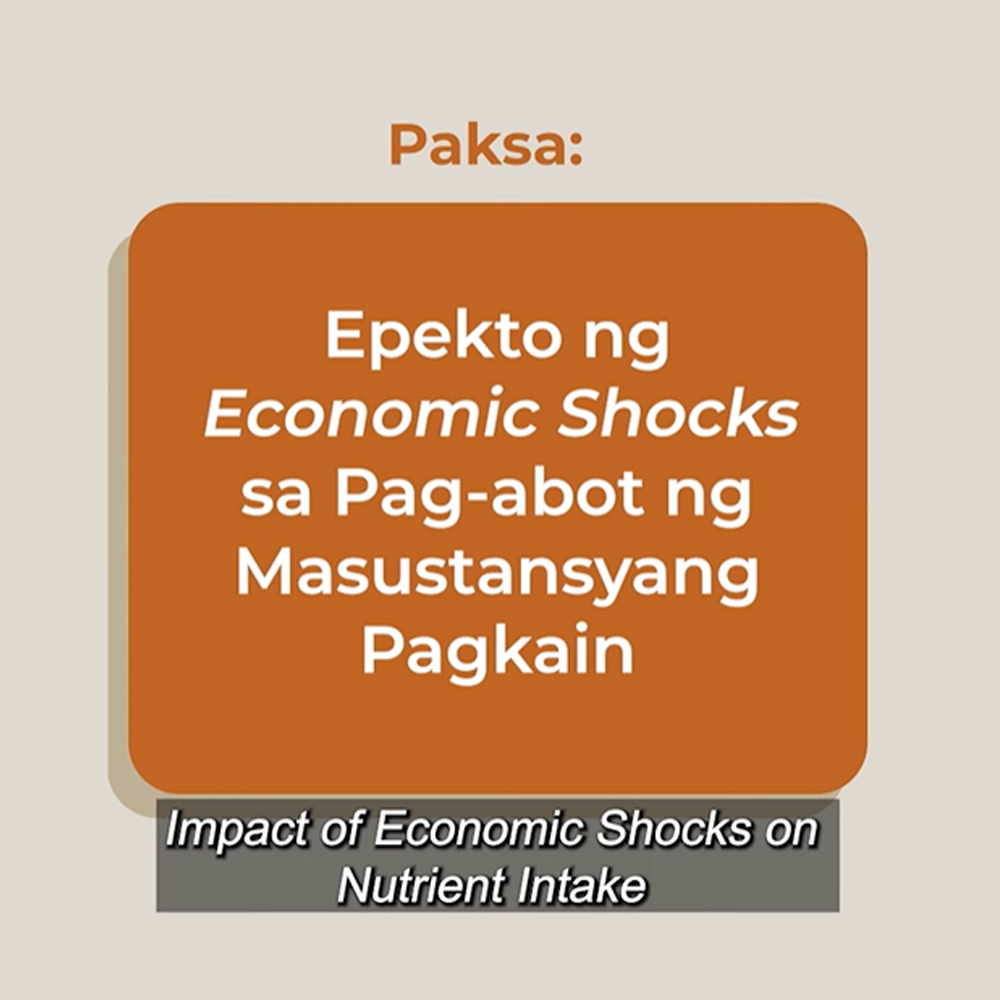This study aims to estimate the short-term impact of the recent rounds of food price inflation and the COVID-19 crisis by estimating a household food demand system converted to energy and nutrient intakes. It demonstrates that recent food and nutrition surveys conducted by the Philippine government are a valuable source of information about household behavior and the impact of economic shocks. It offers a novel methodology for incorporating computing selection effects in determinants in estimating price and income elasticities. The study was nevertheless able to determine that the COVID-19 social protection programs played a significant role in preventing further deterioration in nutrient intakes and worsening of malnutrition. Notwithstanding rapid economic growth, the recent inflation episodes pose a major threat to nutrient intakes and nutrition security. Income policies in the form of targeted cash transfers are an important, albeit expensive, way to counter adverse nutrition impacts of economic contraction. Ameliorating the impact of price increases during inflation episodes should assume priority in policy research and response.
Comments to this paper are welcome within 60 days from the date of posting. Email publications@pids.gov.ph.
Citations
This publication has been cited 6 times
- Desiderio, Louella. 2022. Government should pursue liberalization – PIDS. Philippine Star.
- Jocson, Maria Jacinta. 2023. Protectionism shields bulk of PHL diet from imports — PIDS. BusinessWorld.
- Manila Times. 2023. Rejecting RCEP will be bad for the country's health (Editorial piece by The Manila Times). Manila Times.
- Philippine Daily Inquirer. 2023. Trade liberalization better than food price subsidies, says PIDS. Philippine Daily Inquirer.
- RPN News. 2023. PIDS: Right investments key to more affordable food. RPN News.
- San Juan, Andrea. 2023. PIDS: Right investments key to more affordable food. BusinessMirror.













